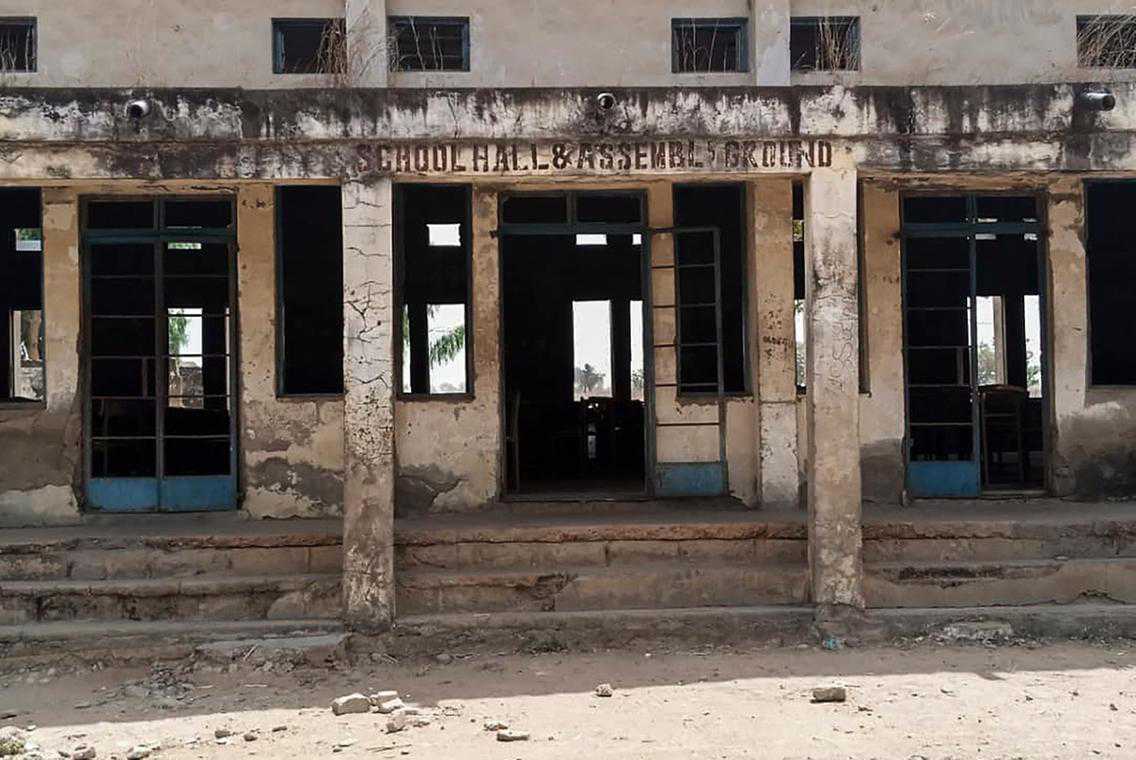Nigerians stay in fear as government stumbles on banditry attacks
25 February, 2021

On the afternoon of Valentine’s Day, gunmen thought to be bandits abducted about 50 bus passengers travelling house from a marriage in Nigeria’s Niger State.
The kidnapping - less than 60 kilometres from Minna, the state capital - must have made international news.
But 72 hours after another group of bandits broke into a institution in Kagara, significantly less than a kilometre from the site of the first strike, abducting a huge selection of schoolboys and their teachers.
Such incidents are becoming almost routine on northern Nigeria, where bandits and extremists hound the friends and relatives of their captives for ransom money.
A day following the bus attack, the bandits released a one-minute video recording showing what were scores of men, girls and children sitting less than armed guard in a forest. Their captors wield rocket-propelled grenades and AK-47 assault rifles, addressing the surveillance camera in the neighborhood Hausa language.
The message: Give us 500 million naira ($1.2m) and we’ll return all your family members.
A week later, the wedding guests were released, however the schoolboys and their teachers remain being held hostage.
This attack and others lately have contributed to an atmosphere of dread in the region. Groups of guys brandishing guns and other weapons are sweeping large groups apart, or attacking important network figureheads to make a fast buck.
Ummulsa’ada Aliyu, whose city, Kusherki, was raided in the same week as the bus and university attacks, said her great-uncle was the mark of a recently available raid.
“They broke in to the house and ransacked all over the place but couldn’t find anyone inside. So they went in search of the village mind, who is actually our father’s uncle,” she said.
“They found him and shot him in his mouth, and the bullet ripped through his head because he showed resistance. Then they took my dad’s youthful brother, who is still in their custody.” Ms Aliyu informed The National. Her great-uncle died of his injuries.
Since the abduction, the bandits have demanded a ransom of 20 million naira.
The attack has heightened fears of future raids.
“Whether you will be directly affected or perhaps not, the most crucial thing you would carry dear is your basic safety,” Ms Aliyu said.
“We are just living in fear, but that fear disappeared when soldiers were deployed to Kagara MUNICIPALITY Secretariat. However, the strike at Kagara Government Research College brought up our fears of a very likely do it again in Kusherki. Nobody trusts anyone,” she said.
Solving an entrenched problem
Northern Nigeria has been suffering from insecurity and organised crime for decades.
Kidnappings show no signals of falling, and government-led initiatives just like a short-term gun amnesty in 2016 did little to avoid the free-for-all.
As state and nationwide governments grapple with the task, residents of Zamfara, Kaduna, Sokoto, Kebbi, Katsina and Niger states suffer.
Acaps, a consortium comprising the Norwegian Refugee Council, Save the kids and Mercy Corps, estimates 21 million persons surviving in these states have already been affected by bandit episodes. International Crisis Group says a lot more than 200,000 persons have been displaced by the repeated attacks.
Idris Mohammed, who experts and lectures on violent conflict at Usmanu Danfodio University Sokoto, said banditry has become a profitable business in the north of Nigeria as the government continually negotiates the repayment of ransoms.
“I think the federal government is intentionally not looking at this crisis, if you look at it critically, [you will dsicover that] there are as a result many factors that contribute to this crisis that the government is turning its eye away from.”
“The federal government is always enthusiastic about granting the bandits amnesty, sometimes using soft approaches.”
Dr Kabiru Adamu, an analyst of West African defence and secureness, and who founded reliability and intelligence firm Beacon Consulting Nigeria, says the country’s centralised secureness apparatus is to be blamed for the explosion of criminal groups in the region.
He said just the government has the capacity to mobilise reliability officers to troubled areas, claims and communities. It distributes “security votes” - monthly income allowances tailored to each state to pay for security costs.
“The states experienced a realisation that it’s only the government can care for the condition … that’s why you start to see the [state] governors arriving at Abuja to meet up the President to discuss security matters. That’s why you find them employ monies distributed around them as reliability votes.”
“Regardless of how effective the reliability vote is, if the reliability agencies don’t support it, it is not likely to work. That is why the condition has continued for such a long time.”
He said regional security forces are woefully outgunned by the organizations they are fighting.
“Sometimes express governors enter into an set up with the government to obtain pump-action rifles. They are rifles that may shoot one or two rounds before you reload them, however the enemies they will be dealing with have fight weapons like AK47s and other complex military weapons,” he said.
For the time being, state governors try other strategies. The governor of Zamfara just lately relaunched the gun amnesty, promising cows to those that handed in machineguns.
Last Thursday, immediate past Chief of Army Personnel, Lieutenant Standard Tukur Buratai, reported it could take Nigeria twenty years to handle her security challenges.
Dr Adamu said the army alone would not be enough to carry out the counterterrorism operation.
“What almost all of us are not happy about is the reality that while he was in office as the principle of Army Personnel, he continued saying that the Boko Haram terrorist group features been defeated,” he told The National.
“Now that he's no more in office, he’s telling it would take twenty years to deal with insecurity, which shows the amount of dishonesty in the battle.”
Source: www.thenationalnews.com
TAG(s):
